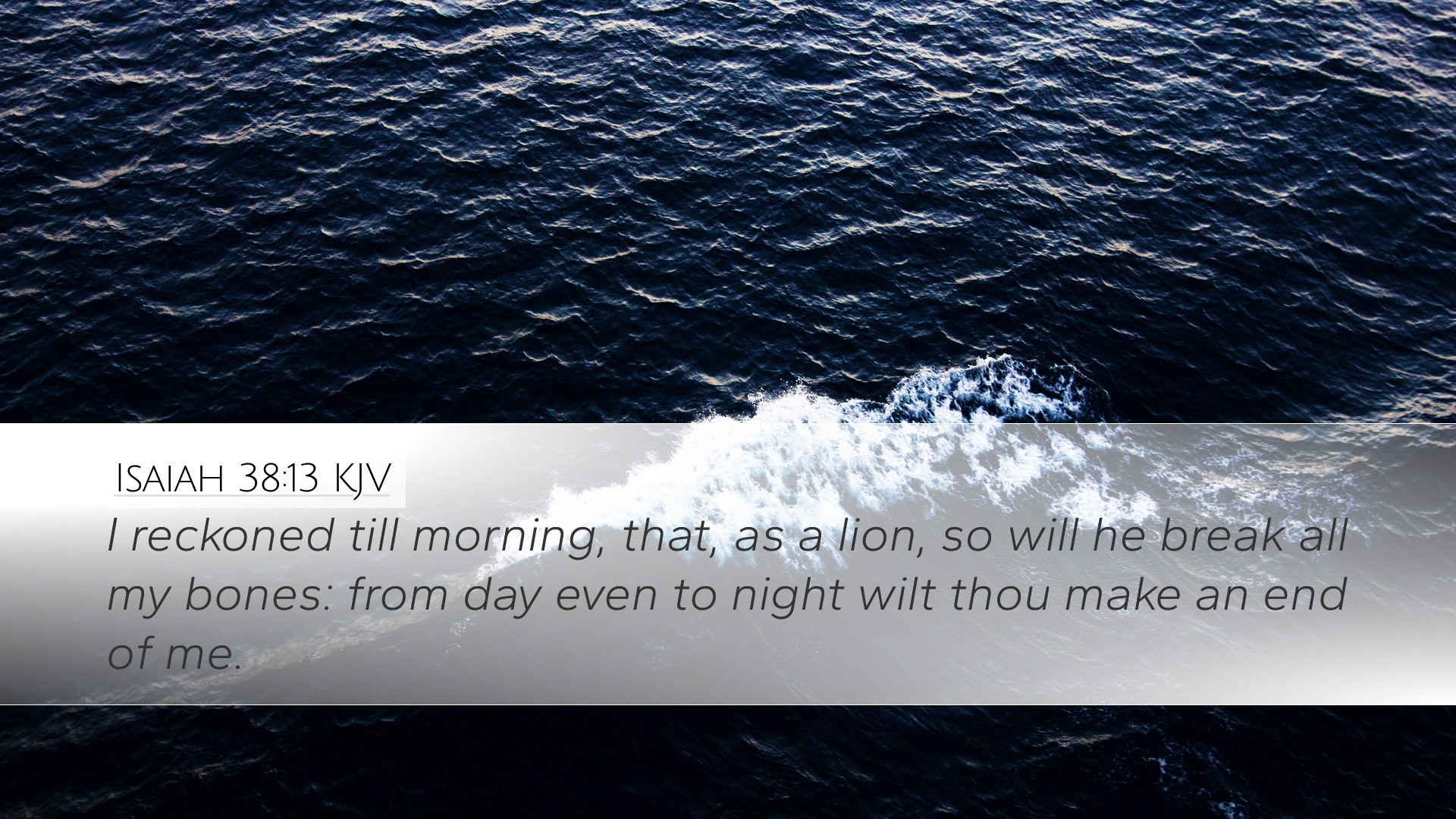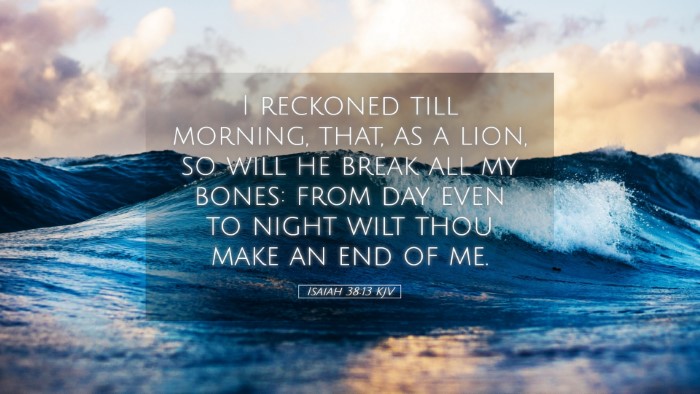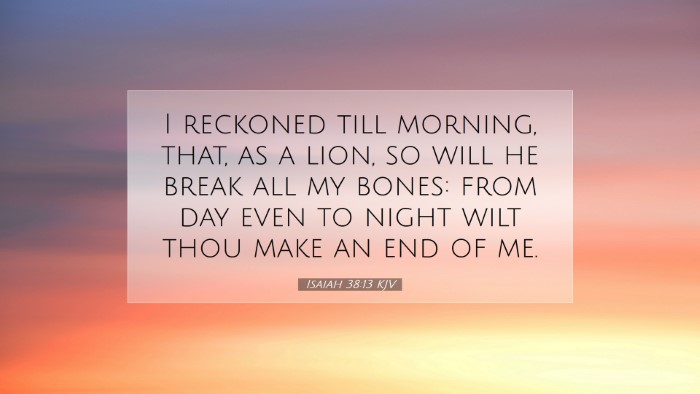Commentary on Isaiah 38:13
Text of Isaiah 38:13 (KJV): "I destroyed once like a lion, thus hath He broken all my bones: from day even to night wilt thou make an end of me."
Introduction
The passage in Isaiah 38:13 offers a glimpse into the complex human condition and the profound relationship between mortality and divine intervention. When commenting on this verse, it is essential to draw from the rich tapestry of insights provided in traditional public domain commentaries, such as those from Matthew Henry, Albert Barnes, and Adam Clarke.
Contextual Overview
Isaiah 38 narrates the account of King Hezekiah, who, after receiving a terminal diagnosis from the prophet Isaiah, turns to God in earnest prayer. This verse highlights Hezekiah's emotional turmoil and sense of vulnerability as he reflects on the fragility of life.
Historical Background
Hezekiah's reign is characterized by significant religious reform and a revival of faith in Judah. However, his impending death brings a stark contrast to his achievements and brings him face to face with mortality. This context is crucial as it underscores the gravity of the moment captured in Isaiah 38:13.
Theological Insights
Human Mortality and Divine Sovereignty
Henry observes the tension between human fragility and God's sovereign will. He notes that the imagery of a lion signifies overwhelming power and destruction. Hezekiah likens his condition to a lion's attack, emphasizing the relentless nature of his illness.
The Cry of Desperation
Barnes points out that Hezekiah's articulation of suffering reflects a profound moment of personal despair. The phrase "from day even to night wilt thou make an end of me" signifies an acknowledgment of the unrelenting approach of death. This urgency in Hezekiah’s voice conveys the depth of his emotional state at this climactic moment.
Interpretative Perspectives
Metaphorical Language
Clarke emphasizes the metaphorical aspects of this passage. The lion's destructive force symbolizes the inescapable fate that grips Hezekiah. The verse serves as a poignant reminder that despite one’s status or accomplishments, life’s inevitability can bring even the strongest to their knees.
The Role of Prayer and Intercession
This verse serves as a prelude to Hezekiah's powerful prayer and petition for healing. The realization of death’s proximity urges Hezekiah to reach out to God, showcasing the importance of prayer and supplication in moments of desperation.
Application for Today
For pastors and theologians, this passage serves as a sermon foundation on the themes of life, death, and divine mercy. It challenges contemporary believers to reflect on their own mortality and the means by which they seek God's intervention in their lives.
Encouragement in Despair
The insights from these commentaries encourage individuals in their moments of distress to follow Hezekiah's example: to turn plead with God earnestly. The acknowledgment of human fragility is not just a lament but also an invitation to experience divine grace.
Conclusion
Isaiah 38:13 encapsulates a moment of profound human vulnerability, layered with theological themes of mortality, divine sovereignty, and the necessity of prayer. This blend of human experience and divine interaction invites readers to contemplate their own spiritual journeys, encouraging them never to lose sight of the hope that lies in earnest supplication to God.


